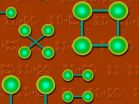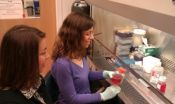(Press-News.org) WASHINGTON -- How can some people respond to a question without answering the question, yet satisfy their listeners? This skill of "artful dodging" and how to better detect it are explored in an article published by the American Psychological Association.
People typically judge a speaker with the goal of forming an opinion of the speaker, which can make them susceptible to dodges, according to the study published online in the Journal of Experimental Psychology: Applied. Limited attention capacity is another reason people fall for dodges, said the authors, citing a previous study in which people counting basketball passes failed to notice a man in a gorilla suit walking through the game.
Dodge detection greatly increased when listeners were directed to pay close attention to the relevance of speakers' answers with regard to the questions, or if the text of the correct question was visible to the listeners as the speaker responded. The ability to recognize a dodge more than doubled, from 39 percent without the text to 88 percent with the text.
"Given concerns that voters are uninformed or misinformed and the many calls for increased education of voters—from politicians and pundits alike—these results suggest that very simple interventions can dramatically help voters focus on the substance of politicians' answers rather than their personal style," said authors Todd Rogers, PhD, and Michael I. Norton, PhD, both of Harvard University.
The researchers conducted four different experiments with four separate groups of people totaling 1,139 men and women averaging 44 years old. In three of the studies, participants watched a video of a mock political debate and then responded to an online survey. In the fourth study, participants listened to excerpts of a recording of a mock political debate and then responded to questions.
The study results indicated that people are frequently unable to remember an initial question if a speaker answers a similar question. Moreover, listeners rated speakers who answered a similar question just as positively as those who answered the correct question. Listeners had the most negative reactions if speakers answered blatantly different questions or if they fumbled their words even while answering the correct question.
But dodges aren't always bad, the authors noted, "such as when someone asks coworkers for their opinion on a new outfit." They pointed out that while posting the text of questions can be done for televised debates, it's not practical to carry around a poster of your questions when going about everyday life. And dodge detecting can be detrimental if people are engaging in creative, wide-ranging conversations.
"Still, our results suggest that in many cases, dodges cause sought-after and relevant information to go unspoken, with little awareness and few consequences," the authors said.
###
The American Psychological Association, in Washington, D.C., is the largest scientific and professional organization representing psychology in the United States and is the world's largest association of psychologists. APA's membership includes more than 154,000 researchers, educators, clinicians, consultants and students. Through its divisions in 54 subfields of psychology and affiliations with 60 state, territorial and Canadian provincial associations, APA works to advance psychology as a science, as a profession and as a means of promoting health, education and human welfare.
Article: "The Artful Dodger: Answering the Wrong Question the Right Way," Todd Rogers, PhD, Harvard University and Analyst Institute, and Michael I. Norton, PhD, Harvard Business School, Journal of Experimental Psychology, Applied, online first, April, 2011.
Contact: Todd Rogers, todd.rogers.mail@gmail.com
END
A Swedish research team partly consisting of researchers from Uppsala University followed a group of prostate cancer patients in the Nordic region for 15 years. The study found, among other things, that surgery reduces the risk that men with prostate cancer (even those with low-risk tumours) will die within 15 years. The results were published today in the New England Journal of Medicine.
The researchers followed Swedish, Finnish and Icelandic prostate cancer patients. Radical prostatectomy (surgical removal of the prostate gland) was performed on 347 randomly chosen ...
Researchers from the Vienna Center for Quantum Science and Technology at the University of Vienna and the Institute of Quantum Optics and Quantum Information at the Austrian Academy of Sciences used a quantum mechanical system in the laboratory to simulate complex many-body systems. This experiment, which is published in Nature Physics, promises future quantum simulators enormous potential insights into unknown quantum phenomena.
Already the behavior of relatively small quantum systems cannot be calculated because quantum states contain much more information than their ...
CHAPEL HILL, N.C. – Researchers at the University of North Carolina at Chapel Hill School of Medicine, after isolating normal stem cells that form the developing placenta, have given them the same properties of stem cells associated with an aggressive type of breast cancer.
The scientific first opens the door for developing novel targeted therapies aimed at triple negative breast cancer. Known also as TNBC, this is a highly recurrent tumor that spreads aggressively beyond its original site in the breast and carries a poor prognosis for patients who have it.
The study ...
An international team of researchers co-led by a University of Minnesota scientist has sequenced the genomes of two fungal pathogens -- one that threatens global wheat supplies and another that limits production of a tree crop valued as a future source for biofuel.
The sequencing of the genetic codes of wheat stem rust pathogen (Puccinia graminis) and poplar leaf rust pathogen (Melampsora larici-populina) is expected to help researchers develop control strategies to address worldwide threats to wheat fields and tree plantations. The study, which was published this week ...
Know thyself. That was Socrates' advice, and it squares with conventional wisdom. "It's a natural tendency to think we know ourselves better than others do," says Washington University in St. Louis assistant professor Simine Vazire.
But a new article by Vazire and her colleague Erika N. Carlson reviews the research and suggests an addendum to the philosopher's edict: Ask a friend. "There are aspects of personality that others know about us that we don't know ourselves, and vice-versa," says Vazire. "To get a complete picture of a personality, you need both perspectives." ...
As the use of biotechnology increases and more companies move forward with the U.S. Environmental Protection Agency's approval to begin full-scale commercialization of seed mixtures in transgenic insecticidal corn, many researchers believe pest monitoring will become even more difficult.
"Seed mixtures may make insect resistance management (IRM) risky because of larval behavior and greater adoption of insecticidal corn," said David Onstad, professor in the Department of Crop Sciences at the University of Illinois and lead author in a recent article published in the Journal ...
AUSTIN, Texas—Computer networks that can't forget fast enough can show symptoms of a kind of virtual schizophrenia, giving researchers further clues to the inner workings of schizophrenic brains, researchers at The University of Texas at Austin and Yale University have found.
The researchers used a virtual computer model, or "neural network," to simulate the excessive release of dopamine in the brain. They found that the network recalled memories in a distinctly schizophrenic-like fashion.
Their results were published in April in Biological Psychiatry.
"The hypothesis ...
More than 20 percent of atheist scientists are spiritual, according to new research from Rice University. Though the general public marries spirituality and religion, the study found that spirituality is a separate idea – one that more closely aligns with scientific discovery – for "spiritual atheist" scientists.
The research will be published in the June issue of Sociology of Religion.
Through in-depth interviews with 275 natural and social scientists at elite universities, the Rice researchers found that 72 of the scientists said they have a spirituality that is ...
May 5, 2011 – (BRONX, NY) – There are no effective treatments for rhabdoid tumors – aggressive childhood cancers that usually strike children under three years old and affect the brain or kidneys. The disease is extremely rare – fewer than 10 cases are diagnosed each year in the U.S. – but is particularly difficult to treat and almost always fatal.
Now scientists at Albert Einstein College of Medicine of Yeshiva University have identified a target for potential therapies for these tumors: a gene called Aurora A that is vital for tumor growth. The research team was led ...
Researchers at the University of Southampton have designed a new pricing mechanism that could change the way in which electric vehicles are charged.
It is based on an online auction protocol that makes it possible to charge electric vehicles without overloading the local electricity network.
The paper entitled Online Mechanism Design for Electric Vehicle Charging was presented this week at AAMAS 2011 – the Tenth Conference on Autonomous Agents and Multiagent Systems, and outlines a system where electric vehicle owners use computerised agents to bid for the power to ...

